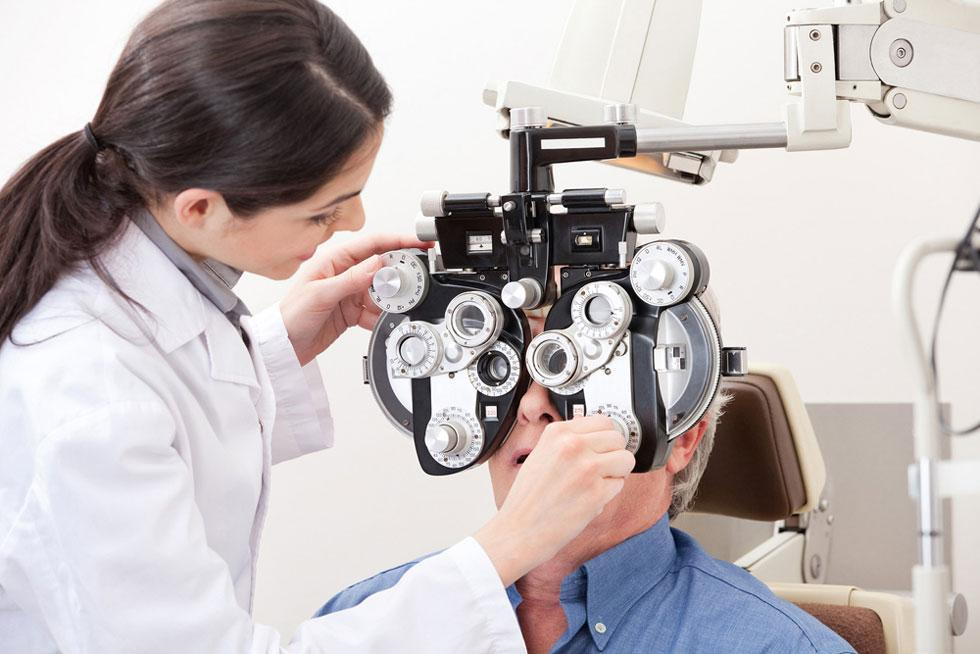All Categories
Featured
Table of Contents

Routine eye evaluations are essential for preserving good vision and finding possible eye wellness issues early. However, the regularity of these exams can vary substantially based upon a person's age, way of living, and general health. Comprehending the recommended timetable for eye examinations can aid make certain that individuals of all ages get ideal care and monitoring for their eye health.
Newborns and Toddlers (0-2 Years)
For infants and kids, eye tests are crucial for finding any kind of potential vision issues early. The American Academy of Ophthalmology suggests that a kid's initial eye examination need to occur at around six months old. During this initial see, the eye treatment expert will certainly evaluate the youngster's visual growth and look for any kind of noticeable eye problems.Following this first examination, it is advised that children have one more eye examination at age three. This visit will concentrate on analyzing the youngster's general visual feature, including eye alignment and the ability to track items. If no problems are spotted, the following exam needs to be arranged prior to the kid begins college, normally around age five or six.
School-Aged Youngsters (6-18 Years)
When children reach school-age child, routine eye tests must be arranged every one to 2 years. Vision is vital for learning and advancement, and several schools carry out vision screenings. These testings do not replace an extensive eye examination by an eye treatment professional.For kids associated with sports or activities calling for significant aesthetic emphasis, yearly eye examinations may be recommended. In addition, if a youngster exhibits signs of vision problems-- such as difficulty checking out, scrunching up your eyes, or frequent frustrations-- a visit to the eye physician need to be set up immediately.
Youthful Adults (19-39 Years)
Young grownups commonly have fewer vision modifications than older age, but regular eye tests continue to be important. The general referral is to set up an eye exam every 2 years during this period. Nonetheless, individuals with certain danger factors-- such as a family background of eye condition, diabetes, or those that wear contact lenses-- ought to think about annual eye examinations.Additionally, those who invest significant time on digital gadgets might experience digital eye stress. If signs and symptoms such as dry skin, exhaustion, or obscured vision occur, it may be important to see an eye care expert faster.
Adults (40-64 Years)
As people enter midlife, the likelihood of creating vision problems rises. Grownups aged 40 to 64 should set up eye examinations every one to two years. This age may begin to experience presbyopia, an all-natural age-related condition that makes it challenging to concentrate on close things. Eye exams can likewise assist spot other typical age-related conditions such as glaucoma, cataracts, and macular degeneration.If individuals in this age have danger variables like hypertension or diabetic issues, they may need even more constant examinations to monitor their eye health and wellness very closely.
Senior Citizens (65 Years and Older)
For senior citizens, routine eye exams come to be also extra critical. The American Optometric Association recommends that people matured 65 and older have an eye exam a minimum of yearly. Older adults are at a greater threat for numerous eye illness, consisting of cataracts, glaucoma, and age-related macular deterioration. Early detection and treatment of these problems can protect against vision loss and boost the quality of life.Conclusion.
Recognizing the ideal schedule for eye examinations based on age is vital for preserving optimal eye health and wellness throughout life. By sticking to these guidelines and seeking advice from with an eye care professional, people can take proactive steps towards protecting their vision and general health.Table of Contents
Latest Posts
Uncover Strathmere’s Coastal Treasure: Stay, Dine, and Relax at Deauville Inn
Published en
2 min read
Relax with Stunning Sunsets at Deauville Inn: Your Beachfront Getaway
Published en
2 min read
Experience the Flavorful Fare of Yesterday's Pub Event catering
Published en
1 min read
More
Latest Posts
Uncover Strathmere’s Coastal Treasure: Stay, Dine, and Relax at Deauville Inn
Published May 15, 25
2 min read
Relax with Stunning Sunsets at Deauville Inn: Your Beachfront Getaway
Published May 15, 25
2 min read
Experience the Flavorful Fare of Yesterday's Pub Event catering
Published May 14, 25
1 min read